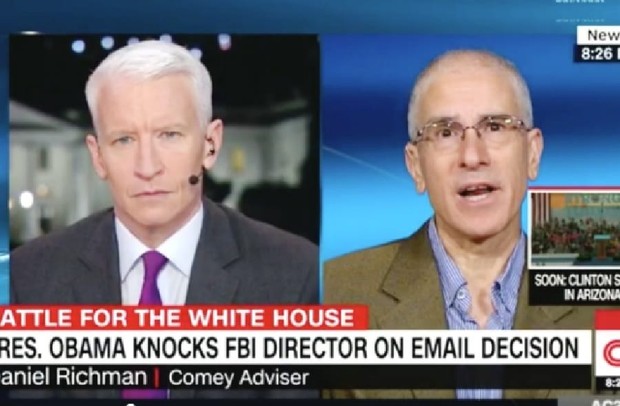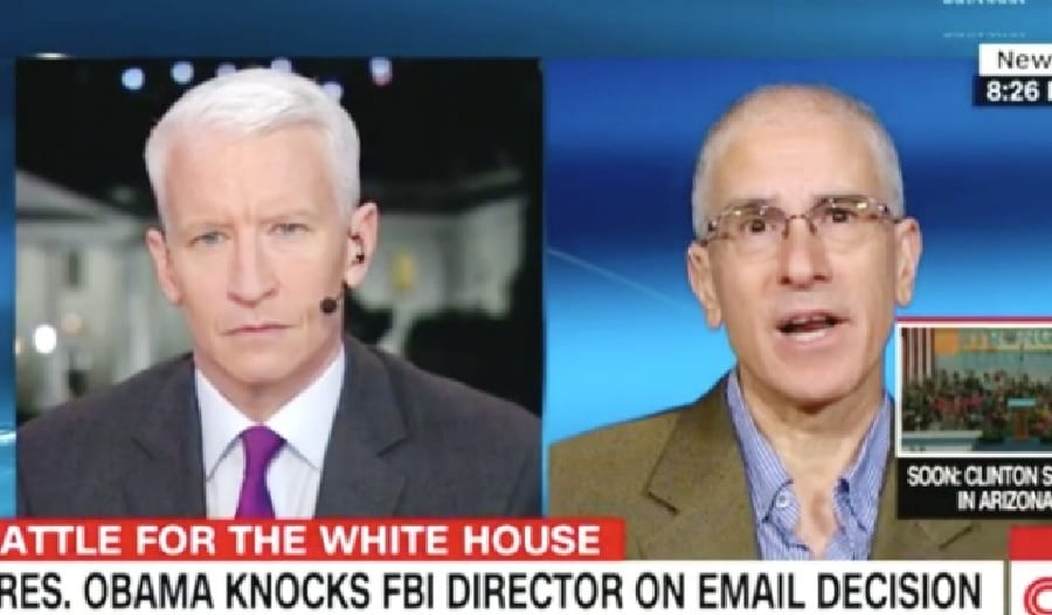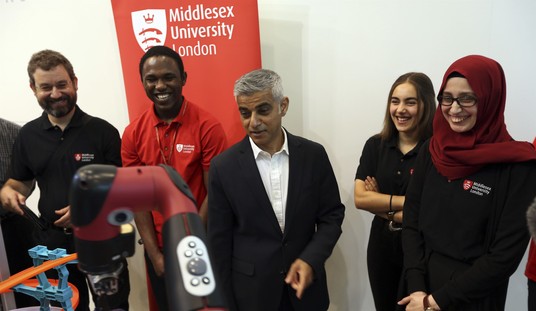
One of the stranger individuals to emerge from the menagerie that is Mueller’s Russia probe is the “friend” of former FBI director, Columbia law professor Daniel Richman.
Richman first came to our attention when James Comey revealed that he had given Richman access to at least four of the memoranda he’d written document his meetings with President Trump.
“My staff has since reviewed these memoranda in a Sensitive Compartmented Information Facility (SCIF) at the FBI, and I reviewed them in a SCIF at the Office of Senate Security,” Grassley wrote. “The FBI insisted that these reviews take place in a SCIF because the majority of the memos are classified. Of the seven memos, four are marked classified at the ‘SECRET’ or ‘CONFIDENTIAL’ levels.”
“If it’s true that Professor Richman had four of the seven memos, then in light of the fact that four of the seven memos the Committee reviewed are classified, it would appear that at least one memo the former FBI director gave Professor Richman contained classified information,” Grassley noted in the letter.
Richman was instructed to leak these to the New York Times after Comey’s firing in order, as Comey said, “I thought it might prompt the appointment of a special counsel.”
When The Federalist called Richman in January, they got a different story:
Daniel Richman, a law professor at Columbia University, told The Federalist via phone on Tuesday afternoon that he was now personally representing Comey.
And now Fox News has found a different version of events:
The Columbia law professor James Comey used as an intermediary to help leak details of sensitive memos worked as an FBI “special government employee” for at least 19 months – during which time he repeatedly defended the FBI director in media interviews amid the Hillary Clinton email probe.
Fox News first reported last week that Daniel Richman was hired as a “special government employee,” or SGE. Records reviewed by Fox News now show he signed the agreement as early as June 30, 2015. The former director previously told Fox News that Richman left the FBI in February 2017, meaning he served there for well over a year.
Sources familiar with Richman’s FBI status said he was assigned to “special projects” by Comey, and had a security clearance as well as badge access to the building. Richman told Fox News in an email last week that he was working as an SGE on an unpaid basis.
FBI records show that as a special government employee, Richman would “serve at the pleasure of the Director [Comey],” with an initial term of one year. Richman’s stated responsibilities included the use of encryption by terror suspects — known as “Going Dark.” In August 2015, his projects were expanded to include “an examination of the implications of federal investigations being brought to state and local prosecutors.”During this time, a review of media reports between July 2015 and February 2017 shows Richman gave multiple interviews defending Comey’s handling of the Clinton email case, including the controversial decision to reopen the probe shortly before the presidential election. He was typically identified as a law professor, and sometimes as a policy adviser to Comey.
Government transcripts indicate Richman was sent talking points about the FBI’s handling of the Clinton investigation. Those talking points attempted to compare and contrast Clinton’s use of an unsecured personal server exclusively for government business with the case of retired Gen. David Petraeus, who shared classified information with his biographer and mistress Paula Broadwell, as well as the case brought against the late Sandy Berger. The former national security adviser under President Clinton pleaded guilty to the unauthorized removal and retention of classified material from the National Archives.
The ethical implications of this are fairly significant. Richman was certainly under a duty to disclose that he was an FBI employee. Instead, he packages himself as some kind of “adviser” to Comey. This is true, as far as it goes, but the adviser relationship was portrayed a being a function of his personal friendship with Comey and not his official status. And if he did disclose it to the media, they were certainly under an obligation to identify him as a “friend” of Comey and not some generic law professor who was a Comey “adviser.” A scarier proposition is that Richman actually did disclose his SGE status and the media–keep in mind he primarily appeared on the Banana Network, CNN–simply laundered him.
This is how a Special Government Employee is defined:
Congress created the SGE category in 1962 when it revised the criminal conflict of interest statutes. Congress recognized the need to apply appropriate conflict of interest restrictions to experts, consultants, and other advisers who serve the Government on a temporary basis. On the other hand, Congress also determined that the Government cannot obtain the expertise it needs if it requires experts to forego their private professional lives as a condition of temporary service. Since 1962, the SGE category has been used in a number of statutes and regulations as a means of tailoring the applicability of some restrictions.
As defined in 18 U.S.C. § 202, an SGE is an officer or employee who is retained, designated, appointed, or employed to perform temporary duties, with or without compensation, for not more than 130 days during any period of 365 consecutive days.
So, even though Richman was on the books from July 2015 until February 2017 he could have served a max of 260 days. But the more direct question is what duties did Richman perform that qualified him to be an SGE? He has no specialized legal expertise, and heaven knows the FBI is virtually afloat on lawyers. It appears his sole function was to feed James Comey’s talking points to the media on an as needed basis and this runs in a very gray area of government media relations. I can’t imagine a situation where it is permissible for a government employee to pass himself off as something else in order to deliver government talking points. It is entirely possible that Richman salved his conscience by only contacting the media during lapses in his SGE status but that is hardly a defense for what he did.
The other data point is that Richman was no longer an SGE when he leaked Comey’s memos to the New York Times meaning he can’t reasonably claim that he was acting in any official capacity by either possessing or leaking the memos.
Regardless, it shows a contempt for honesty that we are beginning to see as a hallmark of the way Comey operates.
https://twitter.com/seanmdav/status/989633568447107073
Question 4: Why did Comey fail to mention he had secretly hired his friend, law professor Daniel Richman, as a “special employee” of the FBI?
(Professor Richman is the same friend Comey leaked government documents to) pic.twitter.com/oE5T2iaGi4
— Mark Meadows (@MarkMeadows) April 26, 2018













Join the conversation as a VIP Member